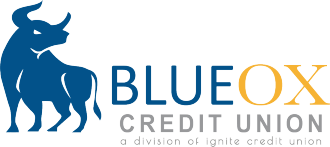tips for teaching your kids good money habits

One of the most essential lessons a parent or guardian can teach their children is how to properly manage money. This is a key factor in helping them develop a solid financial foundation - and the earlier they start learning, the better! In celebration of American Education Week, check out these practical and easy tips for teaching your kids good money habits!
start with the basics
According to research, money habits begin to form by the age of seven. Because of this, parents should start introducing healthy money practices at a young age. Of course, this means starting with the basics and going one step at a time. For example, teaching them how to count using coins or showing them the receipt after a trip to the grocery store. Simple approaches like these will help you begin the discussion of what money is and how it works.
earning
A great way to teach your kids how to responsibly handle money is by providing them an opportunity to earn it. In general, people tend to value the money they’ve made more than the money given to them. Setting up an allowance they can earn by completing household chores is a terrific way to start while they’re young. This will allow them the experience of managing their own money early and help prepare them for future employment.
saving
Teaching your kids how to save money is a process that can easily be missed. This is because they'll mostly see you buying items with money as they grow up – including items for them. However, understanding how to save is essential when establishing good money habits.
Take the time to explain the importance of saving. An easy way to start this while they're young is by providing them with a piggy bank. If they express interest in a new toy, have them save their allowance for it instead of purchasing it for them. You can also encourage them to save by being enthusiastic about it. Express to them how much you enjoy saving money and how rewarding it is!
pro tip – Feeling overwhelmed about how to teach your kids good money habits – try taking advice from other parents! You can start today by checking out two of our Employee Spotlight blogs - Youth Banking and How to Help Your Children Build Their Savings!
continue to educate them
Education about money should start while your child is young and continue as they grow. Using age-appropriate techniques will be the most effective way for them to learn. Stay consistent in your lessons, and be patient as you teach them new and more complex concepts.
young children
The very first step toward setting your child up with good money habits is to open up a savings account for them when they're born. Once their account is established, you can encourage and help them deposit some of their birthday or holiday gift money throughout the years. Another option is opening up a Certificate of Deposit - which offers better dividend rates and terms than a traditional savings account.
Once your child is old enough to count, use jars and coins to help them understand the different values of money. As they get older, you can introduce them to more elaborate money games, such as:
- Board Games – Monopoly, Life, and The Allowance Game are all great examples of fun, educational board games you can play with your kids. Some companies also offer a version for younger kids, such as Monopoly Jr., if the original is too advanced.
- Online Educational Games – There's an endless amount of free online games available to help parents teach their kids about money. Check out these educational sites, where there are resources aimed at every age group!
pro tip - You don’t need a board game or computer to help teach your kids about money. Collect 25 Cents is a simple game where you roll the die and collect whatever number you land on in coins. The first one to collect the amount of a quarter wins. Another idea is setting up a pretend restaurant or grocery store in the house. This is an excellent opportunity to play pretend and have fun while teaching your kids about purchasing items!
teenagers
Once your child becomes a teenager or gets their first job, it’s time to help them open a checking account. From here, they can learn how to use a debit/ATM card and begin the first steps of managing their own money.
The teen years are also the best time to introduce them to the concept of establishing credit and borrowing money responsibly. Prepaid credit cards are a great way for them to get practice handling credit and paying off monthly balances. Start with a small amount of funds and explain the importance of making their payments on time. This will help them have the skills for managing more money and different lines of credit after entering college.
lead by example
One of the most effective ways to teach your children good money habits is to adopt healthy habits yourself. Be aware of sending mixed messages to them – such as complaining about not having enough money and then making a large purchase for yourself. You'll be one of the biggest influences in your child’s life. Try to keep this in mind as you handle your finances and make learning good money habits a top priority!
pro tip – Could you benefit from access to financial education tools and debt management services? If so, check out our partner, GreenPath Financial Wellness. Their certified counselors can help you manage credit card debt, student loans, homeownership, and so much more!
This FREE service is available to all BlueOx Credit Union members. Click the following link to learn more:
what’s next?
Today’s youth are never too young to start learning good financial habits. That’s why BlueOx Credit Union offers a FREE youth banking program to help our youngest members, ages 0-18, get excited about saving and become successful money managers!
With the BlueOx Bright Beginnings Youth Banking program, your kids and teens will have access to a variety of benefits, including,
- Savings Accounts with higher dividends
- No service fees
- Free Online, Mobile, and Text Banking
- Educational Resources
And so much more! Click the link below to learn more and open a Youth Account today:
« Return to "BlueOx Blog"
